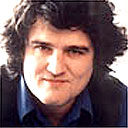
Ingo Metzmacher is one of today's great advocates of musical modernism. In Germany he holds the title of general music director of the City of Hamburg, where he's turned the State Opera into one of the world's most progressive houses, as well as drawing a new audience to 20th century music by scheduling the avant garde alongside the mainstream in his concerts.
In Britain, where we don't get to hear him as much as we should, he's best known for his equally adventurous work with the London Philharmonic, though he's also, if this prom is anything to go by, developed a considerable rapport with the BBC Symphony.
His programme consisted of Ives's Holidays Symphony and Mahler's First, pioneering examples of modernism in America and Europe respectively, though the similarities and differences don't stop there. The ethos of both composers is essentially spiritual, though their views are antithetical. Mahler's solitary, anguished dialogue with God forms a marked contrast with the jubilant cacophony of Ives's pluralistic vision, with its roots in New England transcendentalism and its overriding sense of a myriad individual voices forged into a vast metaphysical unity.
Both works also draw on the childhood memories of their respective composers. Ives's set of interrelated tone poems (despite the title, the work is technically not a symphony) depicts the four main American public holidays with "something of the memory that a man has of his boy holidays". Mahler's First, meanwhile, is haunted by recollections of the early death of his favourite brother (whence its funeral march based on Frère Jacques), the traditional Jewish music of his family background and the military fanfares issuing from the army barracks near his childhood home.
Metzmacher's brilliance lies in his ability not only to examine the spiritual tensions between the two works, but also to unearth unexpected levels of emotion within. The centre of his interpretation of the Holidays Symphony lies not so much in his control, albeit stunning, of the polyrhythmic criss-crossing of multiple blocks of sound, as in those extraordinary moments of stasis and quiet, where you suddenly become aware of the sorrow in Ives's nostalgia. His Mahler, meanwhile, is optimistic, free from neurosis, cynicism and self-pity. He finds grace, joy and wit, as well as sadness in Mahler's memories and a sense of genuine spiritual strength and assertiveness in the final peroration. As so often with Metzmacher, you also get tremendously detailed playing, with every line in the complex counterpoint in both works etched with breathtaking clarity. Stunning stuff.

